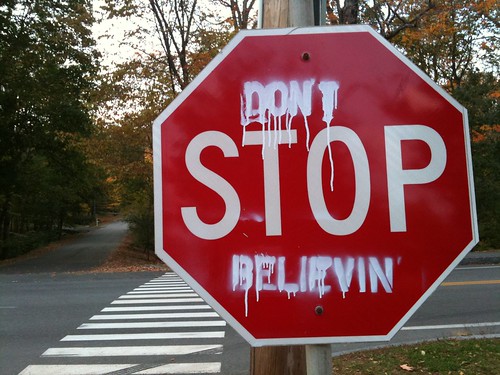There’s a pizza place around the corner from me that’s pretty good. They’ve got a good pepperoni and mushroom slice, and they’ve got this chicken caesar pie, too, if you’re into something kinda different.
But what I like most about this pizza place are the guys behind the counter. There are two guys I see most often working the counter, and they’ve each got a catchphrase.
The first guy waits for you to order, and when you announce your choice of slice, he says, “Why not?”
Order another slice, and you’ll hear, “Why not?”
Hang around the restaurant for 10 minutes and you’ll hear him say it over and over again.
The second guy behind the counter has a different way of responding to each order. Each slice is followed by a simple question: “What else?”
And usually the customer pauses and says, Well, maybe that one? Or that one?
“What else?”
Maybe that one…
I really like this pizza place, because I really like those two questions. I like how, subtly, really good questions can challenge a captive audience. The right questions can force someone to take action that they might not otherwise take.
I’d like more people to ask questions like that when they’re taking on new work. Something too big? Too scary? “Maybe I shouldn’t do this,” you find yourself saying.
Well, why not?
And when you think you’ve hit the end of some work, and you’re trying to figure out if there’s anything left to do:
Well, what else? Is there something more to do?
Those two really good questions could unlock a lot of really good work. Don’t thank me, though. Thank the pizza place on the corner.
———
That photo was taken by Peter Bravo de los Rios for Unsplash.







